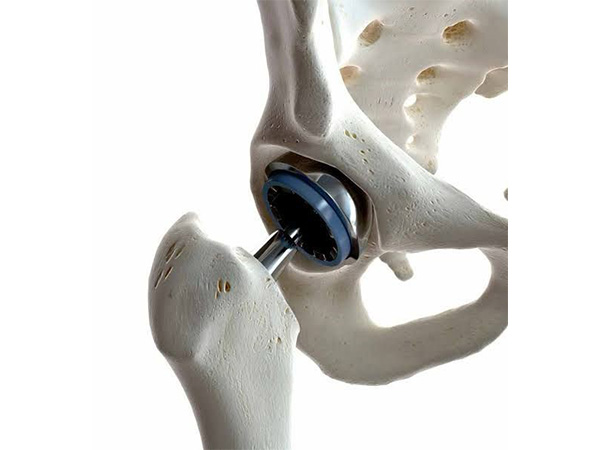Recovering from a major operation like hip replacement requires thoughtful planning. How can you best prepare? What kinds of obstacles might you face? Is having a caregiver necessary during recovery? These are all important questions that must be addressed well in advance by you, your healthcare providers, and your family. Dr. Gaurav Gupta, a specialist in robotic joint replacements based in Jhansi, provides answers to common concerns and offers helpful guidance about healing and rehabilitation after a hip replacement.
When can I go home after a hip replacement?
“Most patients begin walking soon after surgery and are discharged within a few days,” says Dr. Gaurav Gupta. Complete bed rest isn’t typically recommended. On the contrary, gentle movement of the new joint promotes a quicker and smoother recovery. However, individuals with existing health conditions, like heart or lung issues, or those who’ve undergone complex procedures or don’t have support at home, may need more time to remain at rest or under observation.
Will I need to use a walker at first?
Whether or not you’ll need a walker depends on your mobility and stability after surgery. Your surgeon, physiotherapist, and primary physician will assess your situation. If you’re feeling unsteady while walking independently, a walker or cane might be advised temporarily to prevent falls. That said, assistive devices aren’t always necessary for every patient.
When will my hip incision heal?
“These days, hip replacement involves much smaller incisions,” explains Dr. Gaurav Gupta. The surgical site is covered with a dressing and generally heals within six weeks. Until the wound fully closes—which usually takes about two weeks—patients are advised to avoid bathing to minimize the chance of infection.
How soon does rehabilitation start after the hip surgery?
“Rehabilitation begins before surgery through preoperative physical therapy, and it resumes right after the operation,” says Dr. Gupta. Right after the procedure, patients start working with a physical therapist to learn exercises and restore mobility before returning home. Rehab continues at home over the next few days. Early exercises involve daily movements like sitting up, standing from a chair, and basic walking. Over time, these activities are expanded to include climbing stairs and getting in and out of a car. Strengthening the hip and knee muscles is essential to performing these tasks, making resistance training a key component of recovery.
Hip and Knee Replacement at Jhansi Orthopaedic Hospital
At Jhansi Orthopaedic Hospital, the Hip and Knee Replacement program is managed by a skilled team experienced in all aspects of joint replacement. From the moment you begin preparing for surgery until you’ve fully recovered, the team supports you every step of the way. Pre-surgical counseling, post-operative care, and personalized physical therapy are all aimed at helping you return to your desired level of activity as efficiently as possible.
What is considered a “normal” amount of pain after a hip replacement surgery?
It’s completely normal to experience some swelling and pain at the surgical site in the days following surgery. Dr. Gupta advises taking rest between physical therapy sessions, using cold compresses on the leg and incision area, and speaking with your doctor about appropriate anti-inflammatory medications. Elevating your leg above heart level while lying down can also help reduce swelling. Be aware of your pain levels—if you consistently rate your pain above 6 on a 10-point scale, it’s important to consult your doctor, as this could signal an infection or another issue. As your rehabilitation progresses, pain typically drops to about a 1 or 2 within three months.
How long does it take to recover after a hip replacement?
“Generally, people recover within two to four weeks, but the timeline varies,” Dr. Gupta explains. Several factors come into play, including your age, activity levels prior to surgery, your overall health, and nutrition. A helpful step is participating in ‘prehabilitation,’ a program designed to strengthen your body before the surgery to improve your chances of a faster recovery.
How soon can I return to regular activities after a hip replacement?
The goal of recovery is to help you return to your daily life—whether that means working, playing with children, or resuming your favorite activities. The timeline depends on how physically demanding those activities are. If the operation was on your right hip, it might take up to four weeks to drive safely again. If it was on your left, you might be ready to drive in one or two weeks. Always start in a safe environment like a parking lot and gradually build up to more challenging driving conditions. Avoid driving if you’re taking medications that impair coordination, like opioids.
If your job involves minimal physical effort, such as a desk role, you can often return within two weeks. Jobs involving physical labor may require a six-week break. Sports should be avoided for about six weeks, and swimming should only resume after the incision has healed completely. When it comes to sexual activity, it’s safe to resume once you’re comfortable doing so.
What could slow down my recovery?
“As with all surgeries, there’s a chance of complications like infection, bone fractures, or joint dislocation,” says Dr. Gupta. Watch out for warning signs like persistent fever, fluid discharge from the incision, limited hip movement, or severe pain that doesn’t go away with medication. If you notice any of these, contact your doctor immediately. Going at a manageable pace during rehabilitation and avoiding abrupt or extreme movements can help you avoid falls or dislocations that might hinder your recovery.
How long will my hip replacement implant last?
Modern hip implants are made from advanced materials like ceramic, plastic, and metal, which makes them more resilient than earlier versions that were primarily metal. As a result, current implants can last anywhere from 20 to 30 years, and the chances of needing a second replacement are much lower than they used to be.
How long after replacing one hip should I wait to replace the other?
“If both of your hips are severely arthritic, it’s possible to have both replaced in the same surgery,” shares Dr. Gupta. This approach, known as double hip replacement, can be more efficient and may lead to a quicker overall recovery for some patients. However, it also requires twice the effort during rehabilitation, as both legs will need strengthening simultaneously. Initial mobility at home may be more difficult, so having extra help is important. If you prefer to have each hip operated on separately, it’s best to wait at least six weeks between surgeries. This allows time for recovery and lowers the risk of complications like blood clots.
Visit us on www.docgauravgupta.com, www.joh.co.in



